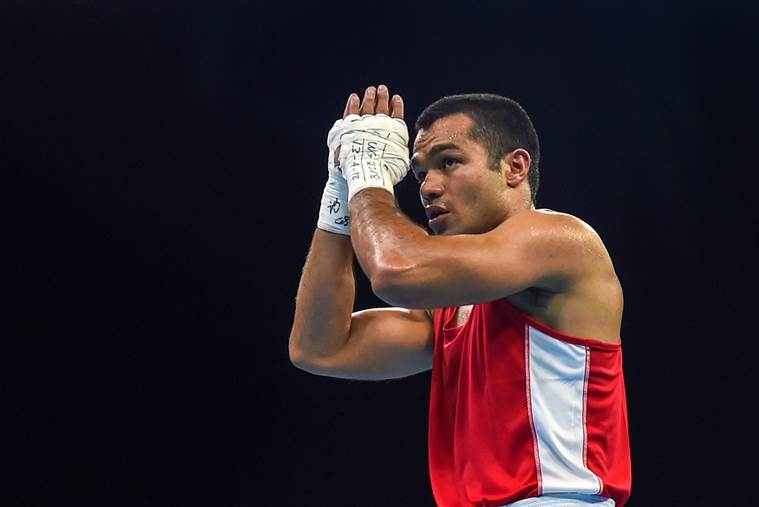 India’s eight-men strong contingent won two gold, three silver and three bronze in recently concluded Commonwealth Games. (Source: PTI)
India’s eight-men strong contingent won two gold, three silver and three bronze in recently concluded Commonwealth Games. (Source: PTI)
Indian boxers may have returned from Gold Coast with their best-ever haul at Commonwealth Games, but coach Santiago Nieva was quick to put the nine medals in perspective. The men’s high-performance director commended his wards but said a lot of work needs to be done to replicate the promising performance at tougher events ahead. The eight-men strong contingent won two gold, three silver and three bronze and Nieva said three more gold could could have been won “if tight decisions in finals went our way.”
“Our boxers defeated opponents from strong nations such as England and Ireland, but there will be bigger tests than the Commonwealth Games. The landscape has shifted and Asian boxers are winning more medals at World Championships. Thus for the Asian Games, we would have to up our game considerably,” Nieva said at the felicitation ceremony held in the capital.
Nieva, along with around twenty boxers, will train at the Michael Johnson Performance Center from May 1-17 to iron out a few things. High on the agenda is rehabilitating the diet. Nieva pointed out the tendency of boxers to follow their taste buds, adding, “we are behind the top nations as far as awareness about nutrition is concerned.”
“When you see boxers from other countries, you can see it in their bodies that there’s very little fat, more muscle and hence more power. The food at the camp in Patiala is not the problem. But the boxers tend to enjoy outside food, which is oily and not good for the body. They think, ‘twenty more minutes on the cycle and I’ll be okay.’ It doesn’t work like that,” said Nieva.
“It was among the issues I identified when I came on board last year but couldn’t focus on it because of other things. We need to figure it out before Asian Games in August. I need to make it a habit that when they’re deciding between tastier and healthier options, they always go for health.”
Nieva also raised other elementary concerns about the physicality and technique of the boxers.
“We are working on the technique but there’s still room for improvement. Sometimes, you can see that the boxers are not putting enough priority on their main, power punches such as the straight right and the left hook. It should come to them naturally, and that makes the difference in tightly-contested bouts.”
Noting that physicality of a boxer is more genetic than talent-based, Nieva said that growth in the area “depends on their ability to continue learning, because you can improve conditioning and strength to an extent through hard work.”
The need for strength is echoed by the losing finalists. Far from satisfied with silver, debutants Amit Panghal (49kg) and Manish Kaushik (60kg) felt hard done by the close calls that went against them in the finals, but added that they would need to pack more punch for further success.
“I think my speed worked for me in Australia,” says the counter-punching Kaushik. “But the strength has always been an issue. That’s the one thing I need to improve so that my punches mean even more in the competition.”
The diminutive Panghal repeated what Kaushik said, but added that he has faith in Nieva’s revamped strength-training regimen.
“In this one year, I can feel that my power has increased manifold. It’s because we are training in the weightlifting halls, and have a coach specifically assigned for that.”
Increasing muscle mass
Satish Kumar, who at 6’1″ and 94kg feels slightly undersized for the superheavyweight category, believes his deceptive speed unnerves his opponents. Increasing muscle-mass and strength is the order of the day for Satish too, but the 2014 Asian Games bronze medallist isn’t going to experiment with his diet much.
“I am looking to eat healthy, but I will never resume eating non-vegetarian food,” says Satish, who took up eating non-veg for six months in the run-up to Incheon, but quit after winning the medal. “I threw up one day and realised it’s not for me. I have built my muscle using natural, vegetarian food and will continue to do so.”